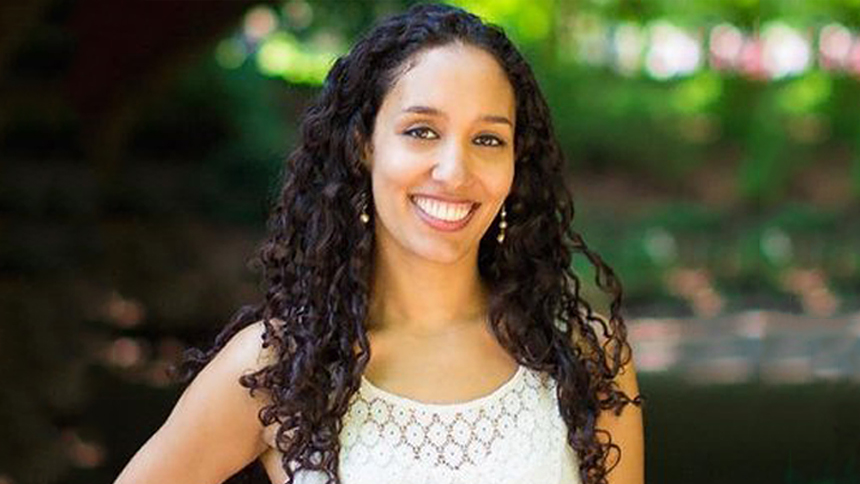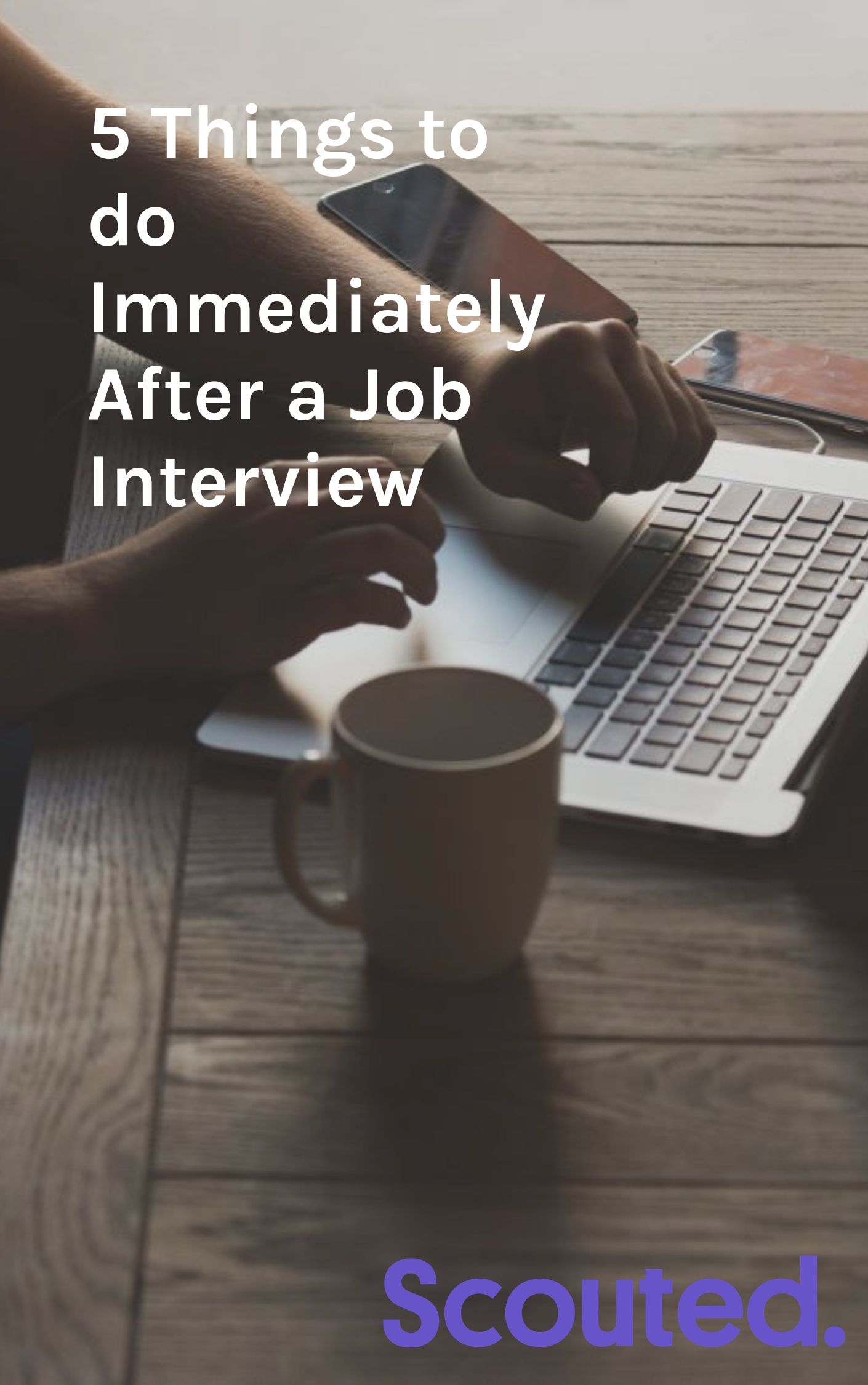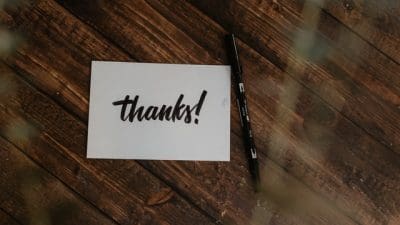So your cheeks hurt from smiling (whether it was real or fake), you just shook your interviewers’ hand, and you managed not to trip on your way out of the office. Nice work. Sure, the hardest part of making a great first impression might be behind you, but don’t breathe that sigh of relief just yet.You might be thinking there’s no more you can do and your career fate is now at the mercy of your interviewer. We’re here to tell you that it’s not over yet. There’s still work to be done! Want to stand out from your competition and make another positive impression? Or howbout set yourself up for another great job if this one doesn’t pan out? Check out the tips below for 5 things you should do after every job interview.
Ask for next steps
This is where you should be able to gain some clarity on the next steps in the interview process, how long the interviewing and selection period might take, and whether there will be a second or third round of interviews. You may even find out how many others are interviewing for the same position. By asking for a timeline or next steps, you’re also giving the hiring manager the expectation that you’ll be following up somewhere along that timeline if they don’t contact you first. At the very least, asking for a timeline will give you peace of mind and a reminder to not freak out if it’s been 5 days and you still haven’t heard from the company. There is still hope! For what to do when their proposed timeline for next steps comes and goes, skip to point #3.
Also on Mediabistro


Write down how you felt about the entire experience
It’s likely that you’re interviewing for more than one job and even more likely that the entire hiring process can take some time. If an offer does come your way, you want to be sure you know exactly how you feel about the company and whether or not you feel like you would be a good fit there. Our advice is, after leaving the interview, grab yourself a cup of coffee and write down in your own words how the entire experience was. What did it feel like when you first stepped into the building? Was it welcoming or intimidating (not that feeling intimidated is a reason to turn down a job offer, but it may be something to consider.)? Were you able to connect with the hiring manager or did it feel like pulling nails to try to make conversation? What was the office environment like- busy? Slow? Write down what you observed, what you felt, and what you felt were the strong points and weak points of your interview. If a job offer is later made to you, review what you wrote to remind yourself how you felt about the company.
[sc name=“Newsletter”]
Send a thank you note
This is a must after every single interview. Even if you decide that you don’t want the job after all, it’s still polite to thank the interviewer for their time and for considering you. It’s always great to make a connection! If, of course, you do still want the job, sending a thank you note will not only set you apart from your competition, it will show your prospective employer that you are enthusiastic about the job and coming to work for the company. A thank you note may even give you an opportunity to clear the air about any parts of your interview that you felt didn’t go so well or a chance to bring up something you forgot to mention in person. In most cases, an emailed thank you will do the job quite nicely, but if you’re applying to a more traditional workplace, a written thank you may be your best bet. When it shows up a few days later in the mail, you’ll be brought to the forefront of your interviewer’s memory again while making a classy impression.
[bctt tweet=”80% of HR managers say thank you notes are somewhat or very helpful, but only 24% of candidates write them. Stand out from the competition and write a thank you note after an interview.” username=”_scouted”]
Add the interviewer(s) to your LinkedIn network
Following your thank you note, it may be a good idea to find your interviewer(s) on LinkedIn to make a connection. They may view your profile and find out a new bit of information about you that wasn’t revealed in the interview or, at the very least, you’ll be making another point of connection. It’s always a great idea to try to stay fresh in your interviewer’s mind, (job interviews are not the place to play hard to get) just try not to overwhelm your interviewing by making too many efforts to contact them before or after your interview. They may start to see you as overwhelming.
If you do find your interviewer on LinkedIn, be sure to send a short message along with your connection request simply restating that you’re thankful for the chance to interview, you’re excited about the company, and you thought it might be helpful to make the connection.
Send sample work
This is something that’s great to do when you send your thank you note or connect with your interviewer on LinkedIn. Again, it will refresh their memory of you while giving them something concrete that says you can do the job and you’re willing to work hard and go the extra mile. In the end, most managers looking to fill a position just want to know if you can do the job and if you’re a good fit for their company. Your interview should have shown them if you’re a good fit, now make sure they know you can do the work, too.
Prepare for a second interview
Sure, you might not have any idea yet whether or not you’ll even be called back for a second interview, but it’s always best to be prepared, especially if there’s not a lot of time between the callback and the interview date. Take this time to look up questions that are typically asked during a second interview and do some digging into the type of work you’d be doing if given the position. This may also be the time when salary and benefits are discussed so it’s good to have an understanding of industry standards and what you would like to make working in this position.
Keep job searching
Even if you feel like you knocked it out of the park during your interview, and while we’re all for being confident, you can’t assume you have the job until you have it in writing. Things happen all the time like HR protocols, department, and directional changes, or maybe there was someone who just knocked out of the park a little further. Not getting a job offer could have to do with 100 reasons other than how you interviewed and in that case, it’s best to give yourself some options. If you’re really excited about the role you just interviewed for, try looking for similar roles at competitor companies. They’re likely to have a similar culture and expectations for the position and if you’re lucky, they may also see you as a good candidate for another interview.
Got any post job interview rituals of your own? What are your favorite ways to make a connection with the hiring manager after an interview? Leave your thoughts in the comments below and share with a pal who’s on the job hunt.











